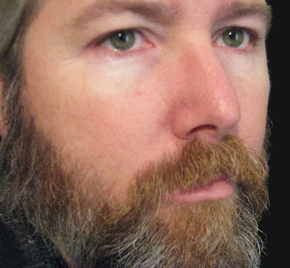Paul McKeever's Definition of Freedom
December 15, 2010 by Paul McKeever
 On the discussion board solopassion.com, Frediano asks “What is freedom?”. He was looking for a concise description. I answered Frediano’s question thusly.
On the discussion board solopassion.com, Frediano asks “What is freedom?”. He was looking for a concise description. I answered Frediano’s question thusly.
Begin with the nature of Man: an animal that must choose to think, and must think logically about the demonstrable facts of reality (i.e., the ones for which ultimately there is physical evidence), to live and to pursue his own happiness. The nature of man – his absolute need to reason and to act rationally, if he is to continue to exist – dictates the political system that is appropriate to Man. It is easy to speak of “coercive physical force” as being something that should not be used. However, that is just convenient short hand, and it misses the essential. The essential requirement of Man, in society, is that no person take his life, his liberty, or his property *without his consent*.
Politically, *consent* is the essential requirement of all transactions between human beings. No person’s life, liberty, or property is violated if he consents to it. The role of government, then, is to ensure that no person’s life is terminated by another person without the first person’s consent; that no person’s liberty is restricted by another person without the first person’s consent; and that no person obtains another person’s property without the latter person’s consent. In short: the issue is consent.
Force is merely a way to *obviate* the need for consent when obtaining another person’s life, liberty, or property. But it is not the only way to obviate consent. Another is *dishonesty*: by misrepresenting the facts of reality, it is possible to obtain a person’s agreement to give you his life, liberty, or property…agreement, without consent. Hence the propriety of laws against fraud and defamation: acts that obviate the practical need for consent, in the short term. Obviating the need to obtain a person’s consent takes the person’s rational mind out of the equation; obviating consent is the act of treating another human being not as a Man, but as an unthinking animal; obviating consent has no place in a society of Men, and those who obviate consent are not Men, even if, biologically, they are humans.
While you are free, you can act as Man must if he is to survive and pursue his own happiness (i.e., if he is to be, and remain, a Man): you can choose to think rationally, and can act pursuant to those thoughts. Therefore, freedom is: not having your life, liberty, or property taken from you without your consent. In this definition, the inclusion of the concept “consent” implies that we are speaking only of not having ones life, liberty, or property taken by a human being. Man-eating tigers, natural disasters and the like can be constant threats to life, liberty, and property even while you are free.
I will just add that I dislike that definition for two main reasons: it speaks of the absense of something, and it is impersonal. In my view, philosophy should be discussed both in terms of what does exist, and in terms of the personal. Accordingly, the definition should be worded: “Freedom, in a political context, means the state of being the only person having control over the use or disposition of ones own life, liberty, and property“.





Great. Thanks for that. It’ll go in my ‘mental list of favorite quotations’
Meanwhile, my thoughts are drifting off to a similar freedom-definition but in the psychological context.
meanwhile I did not consent to that picture of me. Where did that come from.